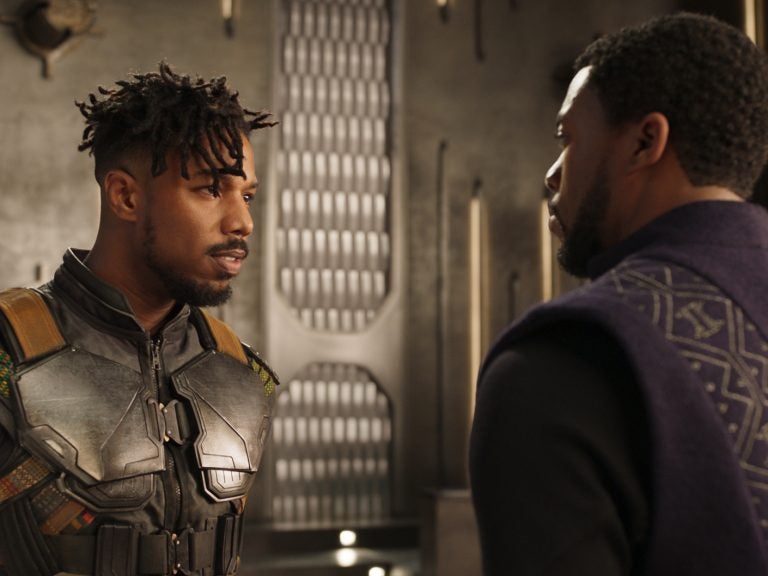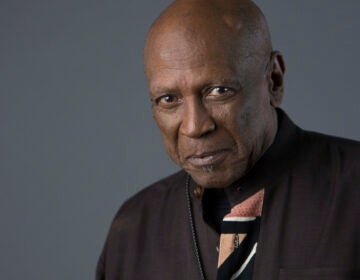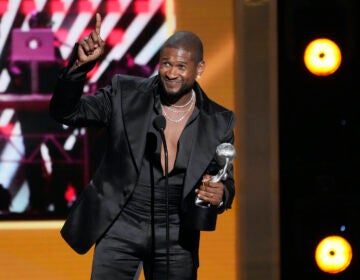Can Marvel’s Black Panther bear the weight of representation?

Since no Hollywood movie with a predominantly black cast has ever had a bigger budget, there's a feeling of collective stakes Black Panther's its critical and commercial reception. (Marvel/Disney/AP)
It’s a ritual that plays out every year or so, whenever a Very Important Black Film is about to drop. Black fraternities, sororities, churches and civic organizations, aunties and teachers and coaches, plan trips by the busload to the cineplex. Maybe it’s Malcolm X or 42 or 12 Years A Slave. Maybe someone holds special screenings followed by panels of cast members, academics or public intellectuals.
The turnout machine for these events is fueled by the still-too-novel joy of seeing black folks on the screen in polished Hollywood fare and winning, for sure. But it’s also colored with some old, deep anxieties, too: if we don’t show up to support these films, the thinking goes, will movies about us keep getting made? Will these actors and directors keep finding work? And doesn’t telling black stories matter as a piece of a larger political and cultural project? You can hear it in the way folks talk about them: these aren’t just films you go see; these are movies you go support.
It’s been fascinating and a little dizzying, then, to watch this notion of audience responsibility and ownership play out with Black Panther, the new Marvel movie that drops on Friday. The hype for Black Panther is unprecedented in its volume — it’s already the best-performing superhero movie ever in terms of pre-sale tickets, with a near-perfect score on RottenTomatoes — but also in its tenor. And since no movie with a predominantly black cast has ever had Marvel/Disney’s bottomless pockets to pull from, it might actually be the first Important Black Movie that does not need the turnout machine. But rep sweats, it seems, aren’t so quick to evaporate.
That means that Black Panther has been at the center of the first the superhero blockbuster hype cycle freighted with real political significance. A write-up on the Root of the movie’s strong early reviews exclaimed: “What Black Panther offers is more than a movie; it’s a movement and a force that can’t be reckoned with.” The hashtag #WhatBlackPantherMeansToMe was trending a week before the movie’s release; the #BlackPantherChallenge planned to raise $40,000 so that kids in Harlem could go see it. And of course, there was the viral video of black Atlanta middleschoolers joyously dancing in a cafeteria after they found out their school would be taking them to see it. An essay on CNN asserted and that its premiere will have the feeling of a black national holiday, and that Black Panther will do for film what Obama did for the presidency.
That’s kind of a whole lot, y’all. And Marvel has been shrewdly leaning into this need to support. Earlier this month, there was a special advance screening for a theater full of Howard University students, followed by a conversation between its director, Ryan Coogler, and Ta-Nehisi Coates. You get the sense that Marvel knew, maybe for the first time, that the people who were going to cosign this film’s credibility fall outside of the traditional superhero fandom. (There’s an element of class and cache here, too; these are black folks in a position to rubber-stamp art as Good For The Culture and respectable.)
It’s an impulse that folks have tried to manipulate in the past. When Red Tails was set to debut in 2012, it boasted what at the time was the largest budget for any movie with a predominantly black cast. George Lucas, the executive producer, went on The Daily Show and claimed that Hollywood studios were scared to bankroll it, for fear that there wasn’t an audience for an expensive film with an all-black cast. His charge was implicit: and we’re going to go out and prove them wrong, right, black people? That claim got a lot of attention, and the movie opened strong as aunties and church groups organized group outings to see it, as if called to action. But that momentum didn’t last; people realized really quickly that Red Tails was trash and the negative word of mouth killed any of its staying power. Lucas’s play to get black folks to show up reads as sketchy now, but its cynicism is plain because his entreaty was so clumsy and the movie was so damn bad. Marvel’s promotional outreach for Black Panther has been more assured and thoughtful, but they’re still ultimately trying to get butts in seats.
Black Panther is, blessedly, not Red Tails. It’s mostly pretty good! (Glen Weldon, NPR’s resident big-thinker around comics and superheroes, has a glowing review of it that you can read here.) And even though the advance write-ups have been breathless, they haven’t been solemn; it’s rare that the unveiling of Important Black Films feel so celebratory. (I mean, come on: It’s an afrofuturist pageant stocked with unreasonably attractive people and ass-kicking warrior women. This is not a difficult sell.)
As you watch Black Panther, though, you might wonder a little about the tradeoffs of building your black fantasia with bottomless Marvel/Disney money. It’s filled with some genuinely provocative ideas about black diaspora, ideas that have never made it into a superhero movie. This is a mild spoiler, but the Bad Guy in Black Panther was radicalized by growing up under the yoke of white supremacy in America and, uh, he makes some pretty compelling points. It’s not hard to imagine him drawn much more sympathetically in an alternate universe Ryan Coogler movie that doesn’t also have to pull in, say, $600 million in global box office receipts. Black Panther is a big, ambitious deal, as black as anything we’ve ever seen occupying its considerable cultural platform, shouldering a whole lot of black folks’ hopes and imagination and still fundamentally constrained by its capitalist, institutional obligations. Perhaps there’s something to that “Obama of film” notion, after all.
9(MDAzMzI1ODY3MDEyMzkzOTE3NjIxNDg3MQ001))




